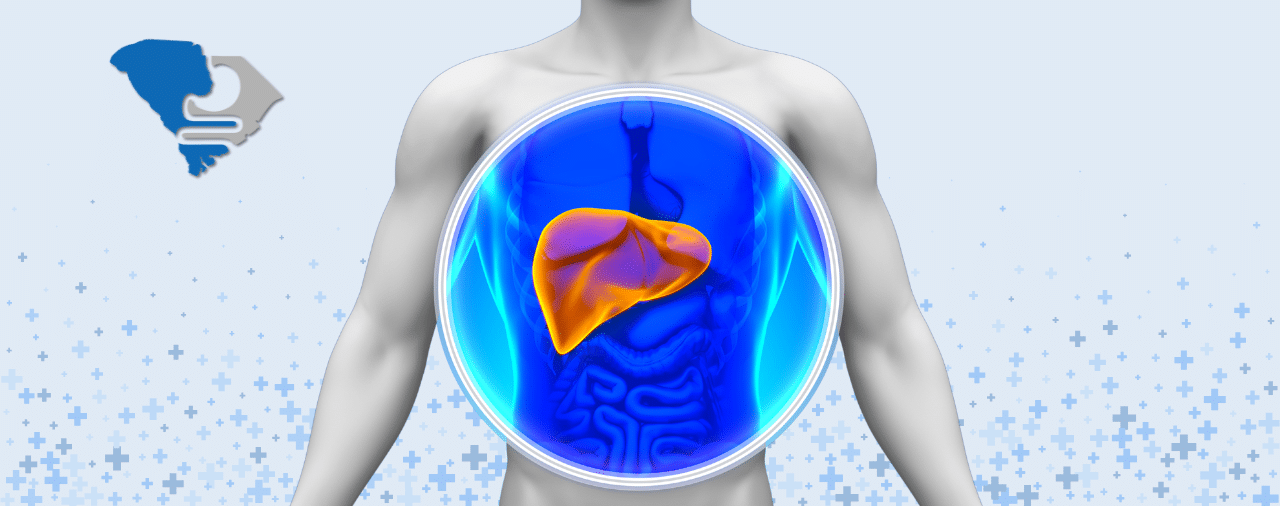Fatty liver disease is one of the most common liver conditions seen today, affecting millions of Americans. It occurs when excess fat builds up in the liver, interfering with its ability to function properly. Over time, this can lead to inflammation, scarring (fibrosis), and in some cases, permanent liver damage (cirrhosis).
The good news? Fatty liver disease is often reversible — especially when detected early and managed with the right care plan.
“I recently had some acid reflux issues and told my doctor at my yearly physical. He referred me to Gastroenterology Associates for an endoscopy with Dr. Saha. When she did not find anything during that procedure, she wanted to look into my gallbladder and liver. That is when she discovered the fatty liver during an ultrasound.” — Joshua Hyatt, 33-year-old patient of Dr. Ritu Saha
How Can a Gastroenterologist Help with Fatty Liver Disease?
Gastroenterologists specialize in diagnosing and treating diseases of the digestive system, including the liver. When it comes to fatty liver disease, your gastroenterologist plays a key role in:
- Accurate Diagnosis: Through careful history taking, blood tests, physical exam, imaging studies, and specialized tools like FibroScan®, we can determine the extent of liver fat and any signs of fibrosis or scarring.
- Identifying Underlying Causes: Fatty liver disease may be linked to obesity, diabetes, high cholesterol, hypothyroidism, polycystic ovarian syndrome, alcohol intake, and certain medications. Understanding the cause helps guide a more effective treatment plan.
- Creating a Personalized Management Plan: Gastroenterologists work closely with patients to develop individualized plans that may include lifestyle modifications, weight management strategies, and, if needed, medication.
- Monitoring Liver Health Over Time: Regular follow-up visits allow us to track improvement and make adjustments as needed to prevent progression of disease. For some patients, this may be recommended every few months or twice a year.
By partnering with a gastroenterologist, patients can better understand their condition and take proactive steps toward improving liver health before complications arise. Fatty liver is one of those conditions where the patient’s involvement is perhaps the most crucial part of getting better.
“Dr. Saha has been really great. Her team was receptive to talking about what exactly fatty liver disease means. Not many people even know what it is, so I did not understand what that entailed and what the consequences could potentially be. She was also empathetic too, because a lot of it is based off your weight. I have three small kids and work full time, so going to the gym for two hours every afternoon five days a week is very difficult. She was very compassionate and helped me come up with some other ideas that worked for me and my schedule.” — Joshua Hyatt
What Are the Best Ways to Promote Liver Health?
While medical guidance is essential, many aspects of liver health are only within YOUR control. Here are some of the most effective ways to protect and strengthen your liver:
- Maintain a Healthy Weight: Even a modest weight loss of 5–10% can significantly reduce liver fat and inflammation. This should not be done precipitously and should be maintained. Rapid weight loss, like rapid weight gain, can be detrimental.
- Eat a Balanced Diet: Focus on whole foods — plenty of vegetables, fruits, lean proteins, and whole grains. Limit processed foods, sugary beverages, and foods high in saturated fats.
- Exercise Regularly: Aim for at least 150 minutes of moderate physical activity each week. More and more data out there now suggests that walking is the most sustainable and beneficial exercise that we can do. It also requires zero dollars.
- Limit Alcohol Consumption: Excessive alcohol can worsen liver damage, even in those with nonalcoholic fatty liver disease.
- Manage Other Health Conditions: Keep diabetes, high blood pressure, hypothyroidism, and cholesterol under control.
- Take Medications Wisely: Always use medications as prescribed and discuss any supplements with your doctor to avoid unnecessary strain on your liver. Please do not order supplements from social media or Amazon, as these are not regulated by the FDA and therefore their effects are not adequately studied.
“Dr. Saha started me on a low-fat diet and I started becoming more cognizant in my head of what I am eating and putting in my body. Plus, you have to be creative with your workouts as a busy parent. If I am kicking the soccer ball with my son, I sprint to go get the ball instead of just walking. I have lost 25 pounds so far!” — Joshua Hyatt
When to See a Specialist
If you’ve been told you have elevated liver enzymes, have risk factors such as obesity or diabetes, or simply want to know more about your liver health, consider seeing a gastroenterologist. Early evaluation can make all the difference in preventing long-term complications and keeping your liver healthy for years to come.
“I have talked to a lot of people my age and they don’t see the necessity in getting the annual exams and blood work—because we are young and healthy—but in my opinion, being proactive in my health has really been a game changer for me. If you don’t talk to your doctor about it, then you may not ever know this issue is going on until it becomes too late.” — Joshua Hyatt
At Gastroenterology Associates, our team is committed to providing comprehensive care for all aspects of liver and digestive health. Please don’t hesitate to text 864-589-6714 or schedule a visit with one of our providers.
Written by Dr. Ritu Saha, Gastroenterologist


